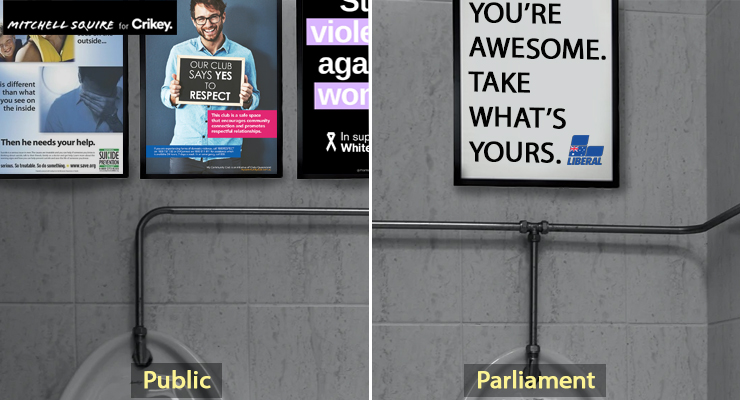In some respects Christian Porter’s role is one of a higher public trust than that of the prime minister. He is also accused of committing a heinous crime. That, like it or not, hangs over his head.
Note: this story contains references to sexual assault.
Christian Porter has stepped forward, finally ending the unseemly and paralysing speculation over which cabinet minister has been accused of rape. He has denied the allegation and declared that he will not be stepping down.
The criminal justice route is closed. There will never be a determination as to whether Porter is guilty of a crime, beyond reasonable doubt. In that context, the presumption of his innocence is permanently fixed.
However, this fact remains: he is the attorney-general, the first law officer of the Commonwealth, a cabinet minister, and member of the Executive Council which advises the Queen through her agent the governor-general. He has access to the highest level of classified information and participates in the decisions made by the most powerful ruling body in the country.
He literally makes laws and he oversees the entire legal profession including the courts, the bar, and my own branch, solicitors. In some respects his role is one of a higher public trust than that of the prime minister.
He is also accused of committing a heinous crime. That, like it or not, hangs over his head, unresolved.
Suppose we were talking here not about a minister but a schoolteacher, publicly accused of raping a school child, in circumstances where a criminal prosecution was not possible.




If the school principal’s only response to the exposure of the allegation was to say “I’ve spoken to him, he denies it, so that’s the end of the matter, he will be continuing to teach your children”, how many parents would accept that as a tolerable outcome?
The criminal aspect
should not be allowed to cloud our focus on the key question here: is it
tenable that the attorney-general continue to occupy his office of state in the
circumstances that present themselves?
The same question arises every day — in schools, companies, boardrooms, sporting codes, and so on.
For example — I was asked last year by the chairman of a large charity to conduct an independent investigation into a whistleblower allegation of sexual misconduct, against a member of the charity’s board.
The allegation was serious, and obviously called into question the director’s ability to continue to serve in his role. There was both an immediate question of whether he should stand down (or be stood down) while the investigation proceeded, and then the ultimate question of whether he was fit and proper to be a director, depending on the investigation’s outcome.
The attorney-general’s situation is the same but more serious. He holds massive power and responsibility, and he also accesses massive entitlements which are all paid for by the public.
He is a public servant, pure and simple. It is axiomatic that he must be beyond reproach and above suspicion.
In order to reach a position where the prime minister can be confident that his minister is able to continue to serve as first law officer and a member of his cabinet, he must institute an independent inquiry to examine and determine the allegation.
As I have said, the determination will be on the balance of probabilities. The law says that that is not sufficient to determine criminal guilt, but it also says that it is an adequate basis for resolving questions such as whether a person is fit and proper for their role.
I will say one thing about what the Attorney-General said in his press conference: his repeated assertion that, in an inquiry of the kind I have suggested is necessary, he would be required to “disprove” the allegation against him, something he cannot do. That is incorrect.
He would not bear any burden to disprove anything. The inquiry’s purpose would be to investigate the allegations against him and determine whether they have been established on the balance of probabilities. The onus, as always, would be on those advocating the allegations.
The integrity of the cabinet, the government and the legal system is at stake. The public trust and public faith in that integrity is at stake. The stakes could not, as a fact, be any higher.
Michael Bradley was the lawyer for the now deceased women who accused Christian Porter of rape. He writes for Crikey on legal affairs.
If you or someone you know is impacted by sexual assault or violence, call 1800RESPECT on 1800 737 732 or visit 1800RESPECT.org.au.




Inoculate yourself against the spin
Get Crikey for just $1 a week and protect yourself against news that goes viral.
If you haven’t joined us yet, subscribe today to get your first 12 weeks for $12 and get the journalism you need to navigate the spin.
Peter Fray
Editor-in-chief of Crikey








